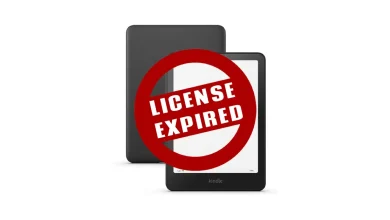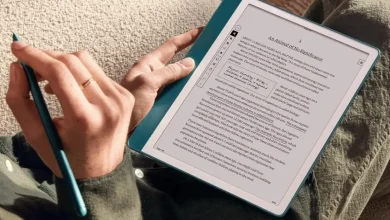
We independently review all recommendations. Purchases made through our links may earn us an affiliate commission. Here’s how it works.
Chinese E-Reader Boox Swaps GPT-3 for Censored AI, Stirring Controversy
Boox, the Chinese e-reader brand, just made a pretty eyebrow-raising move—ditching Microsoft Azure’s GPT-3 for a homegrown AI model built by ByteDance, the company behind TikTok. And, well, people aren’t happy. Turns out, this new AI assistant is packed with heavy censorship and state-approved messaging, which has sparked a wave of criticism.
What’s the Problem with Boox’s New AI?
The biggest issue? This ByteDance-powered AI is extremely selective about what it will and won’t discuss. It dodges sensitive topics, won’t criticize China or its allies, and sticks to state-approved narratives. Here are some of the most frustrating examples:
- Censorship of Topics: If you mention “Winnie the Pooh” (often used to poke fun at President Xi Jinping), you will face a barrier.
- Skewed Narratives: If you ask about Russia’s action in Ukraine, the AI describes it as a “geopolitical issue” caused by NATO instead of saying what is really happening.
- Erasing History: If you talk about Tiananmen Square, the AI avoids the truth, using only the official government story.
- Denials: What about reports of the Uyghur Genocide? The AI shuts that down, agreeing completely with China’s view.
It’s pretty blatant censorship, and it raises a big question: Should companies be pushing AI that filters reality like this onto a global audience?
How Are Users Reacting?
People outside of China aren’t taking this lightly. Some tried discussing the issue on Boox’s official Reddit forum, only to have their posts deleted. And if that weren’t enough, there’s chatter that Boox may have quietly disabled the AI assistant altogether—though the company hasn’t given any official explanation.
Meanwhile, the e-reader market is getting more competitive. The upcoming Hanvon Clear 7 Turbo is shaping up to be a major disruptor, and high-end models like the Supernote A5 X2 Manta are focusing on privacy and functionality to lure users away from brands making controversial choices.
The Bigger Picture: What This Means for AI and Unfairness
Boox’s AI change shows a big worry. AI models often have the cultural, ethical, and political biases of their makers. Sam Altman, the CEO of OpenAI, has said this before. He warned that when companies use other AI models, they are also taking on the values built into those models.
In China, all AI has to get the government’s stamp of approval to make sure it lines up with “socialist values.” And that doesn’t just affect people in China—it means anyone using these systems is interacting with AI that’s been built with those political ideals in mind. It’s not some one-off thing, either. We’ve already seen similar censorship in other Chinese AI models, like Baidu’s ERNIE-ViLG, which straight-up refuses to generate anything related to Tiananmen Square.
If that kind of thing makes you think twice about what AI you’re using, you’re not alone. For anyone looking for an e-note device without the extra baggage, something like the Guowen R8 E-Note might be worth checking out. It’s got a great e-paper display and bonus none of the AI-related weirdness.
Global Pushback and the Fight for Neutral AI
Some countries are already pushing back against AI that comes with built-in biases. Taiwan, for example, is working on its own AI model, “Taide,” designed to offer a more neutral option for businesses and governments.
At the end of the day, this whole Boox situation is a reminder that AI isn’t just about cool tech—it’s shaped by the people who create it. And as AI gets more embedded in our daily lives, we’ve got to ask ourselves: Who’s actually in control of the information we consume?
If this has you second-guessing your next e-reader purchase, more neutral options like the Kindle Paperwhite are still solid choices. No AI drama, just a straightforward reading experience. And honestly, sometimes that’s exactly what we need.
This whole debate isn’t just about Boox, it’s about the bigger question of how AI shapes what we see, read, and believe. Definitely something worth thinking about.




